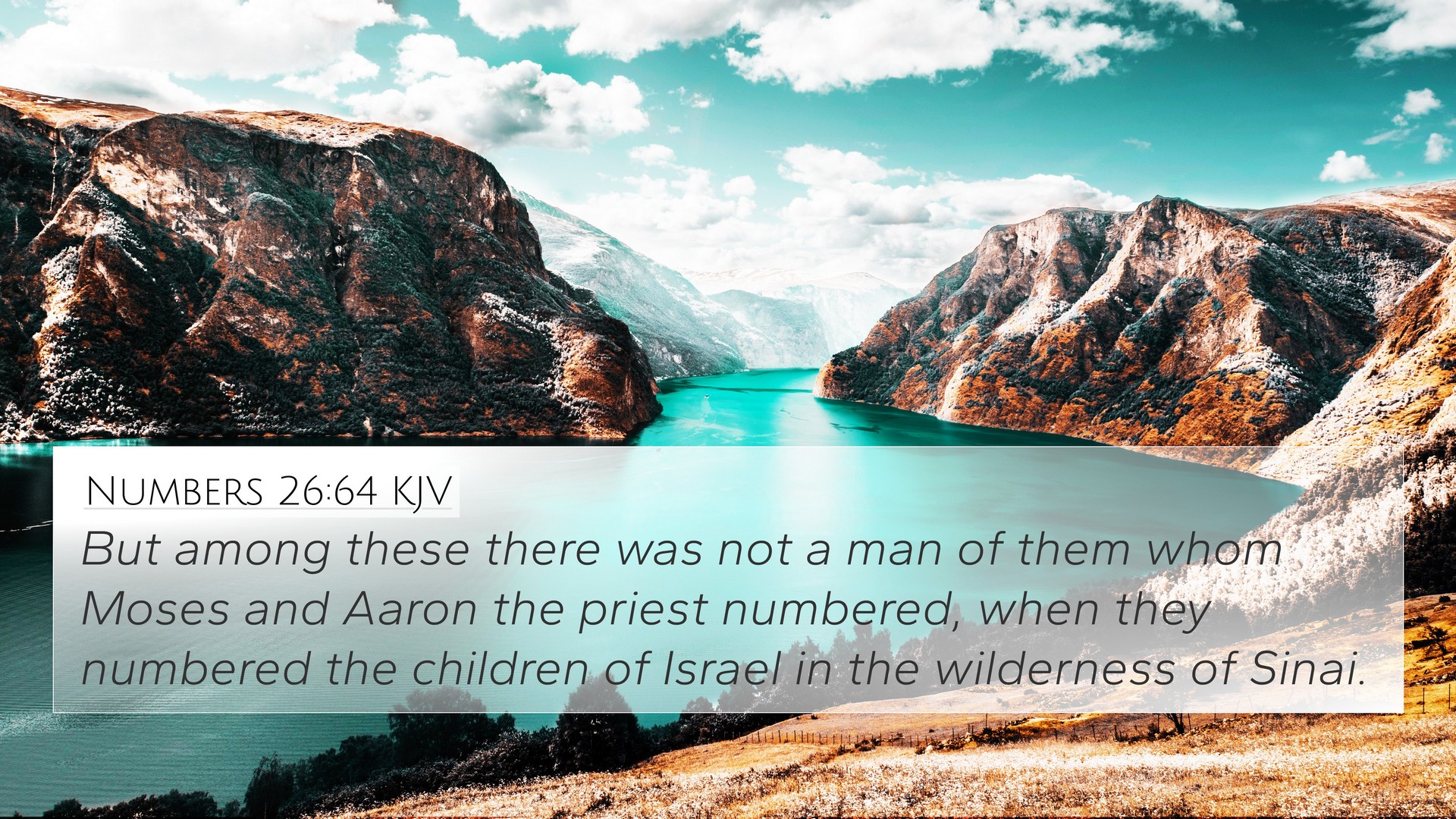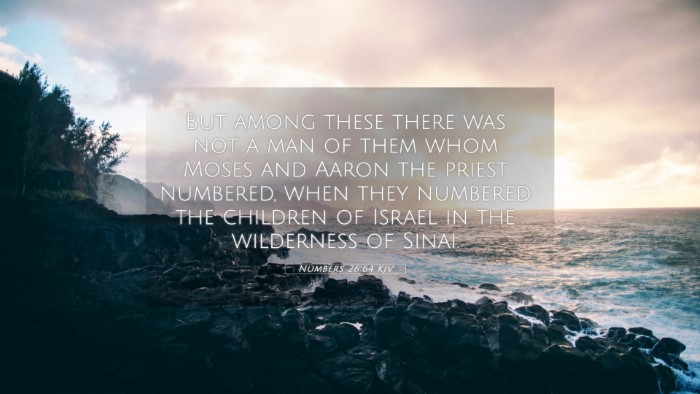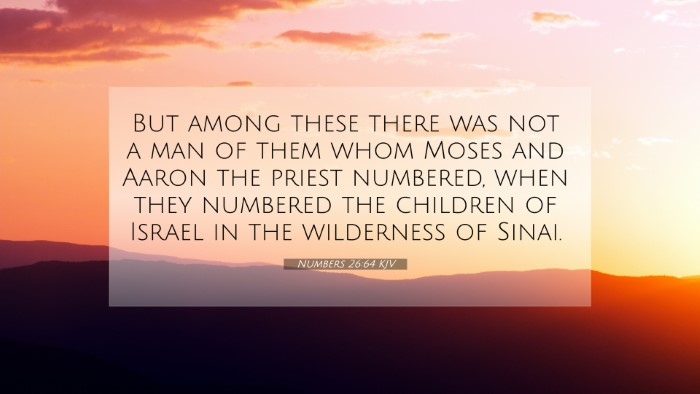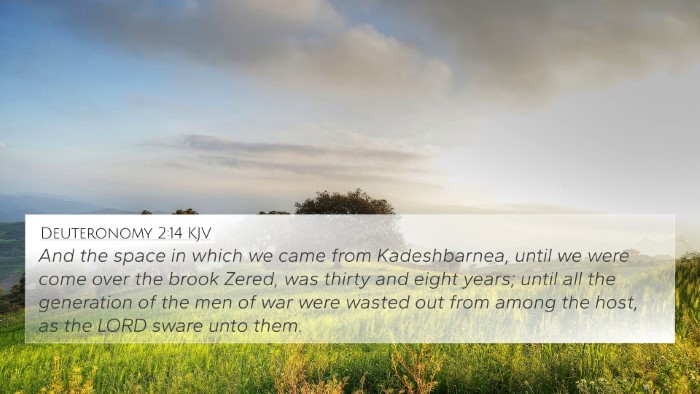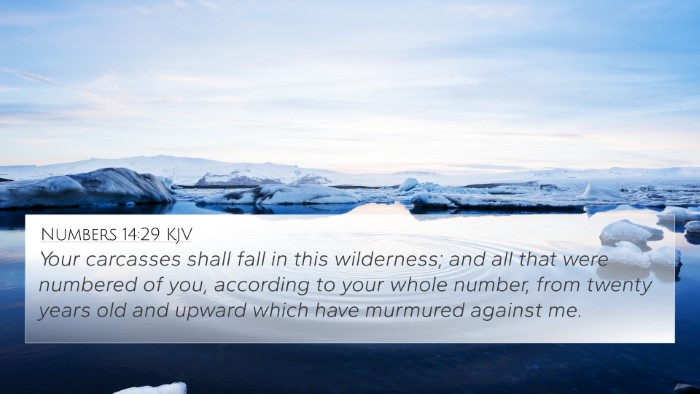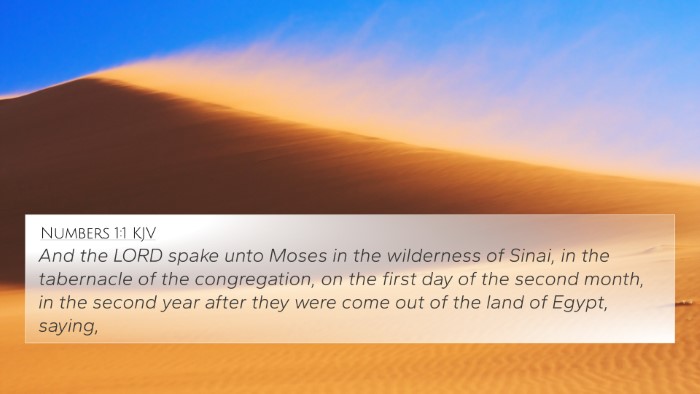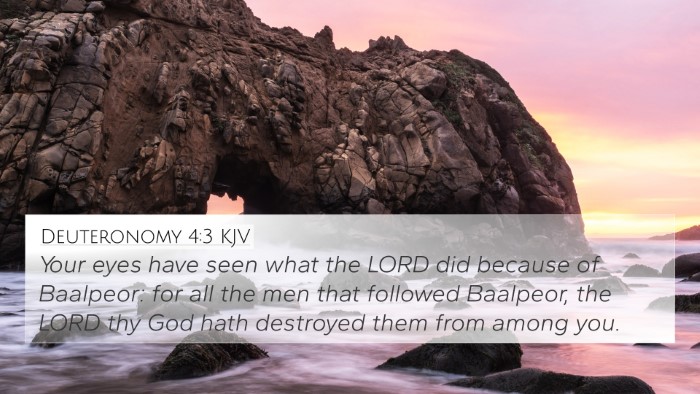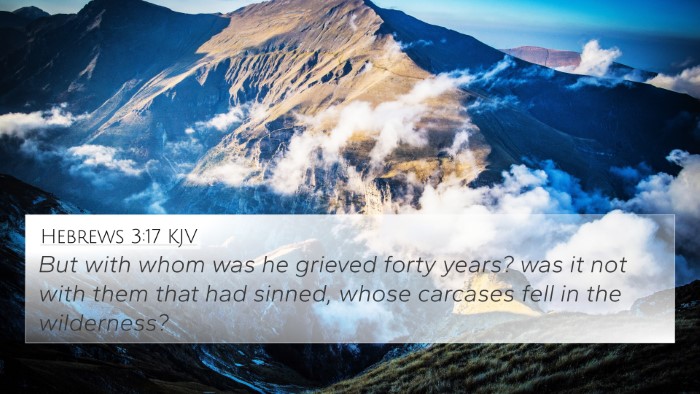Understanding Numbers 26:64
Verse: Numbers 26:64 - "But among these there was not one of them whom Moses and Aaron the priest numbered, when they numbered the children of Israel in the wilderness of Sinai."
This verse addresses a pivotal moment in the history of Israel, focusing on the census of the Israelites conducted by Moses and Aaron. The absence of certain individuals in this count highlights significant themes in God's plan for His people.
Commentary Insights
Matthew Henry: This verse emphasizes the sovereignty of God in determining who is counted among His people. The individuals mentioned had perished in the wilderness due to their unbelief and rebellion against God's commandments. Their exclusion serves as a reminder of God's judgment and the importance of faithfulness to His covenant.
Albert Barnes: Barnes highlights the theological implications of this exclusion. It serves as a warning to subsequent generations about the consequences of disobedience. The wilderness experience represents a period of testing for the Israelites, where only those who remained faithful were preserved and allowed to enter the Promised Land.
Adam Clarke: Clarke notes that this event underscores the transition between the old generation that fell in the wilderness and the new generation that would possess the land. The census signifies not just a numerical count but a declaration of readiness and purity among those who were left. Clarke stresses the importance of understanding the lineage and context of these individuals in the broader narrative of Israel.
Key Themes
- Judgment and Mercy: The exclusion reflects God's judgment on sin, yet simultaneously His mercy in preserving a faithful remnant.
- Faithfulness: The verse illustrates that only those who are faithful are recognized and counted in God's purposes.
- Generational Transition: It signifies a shift from an old generation to a new one, paralleling themes seen in other parts of scripture.
Bible Verse Cross-References
Numbers 26:64 can be understood in light of several other scriptures, illustrating the interconnectedness of biblical themes:
- Hebrews 3:17-19 - Discusses the rebellion of the Israelites and God's anger towards that generation.
- 1 Corinthians 10:5-11 - Paul references Israel’s history of disobedience as lessons for the Church.
- Exodus 32:33 - The consequences of rebellion are highlighted as Moses intercedes for Israel.
- Deuteronomy 1:35-36 - God's promises to Caleb and Joshua show a contrast with the rest of the disobedient generation.
- Psalm 95:10-11 - A reflection on the hardening of hearts and God’s response to unbelief.
- Joshua 5:6 - The new generation of Israelites who would enter the Promised Land.
- Romans 11:4 - God's preservation of a remnant echoes the theme of divine selection amidst judgment.
Connections Between Bible Verses
The understanding of Numbers 26:64 is enriched when examining its connections with other scriptures:
- Linking this verse with Hebrews 3:19 sheds light on the spiritual implications of faith and obedience.
- 1 Peter 2:9 reinforces the idea that believers today are a chosen generation, similar to the faithful remnant in the Old Testament.
- Revelation 3:5 speaks of being acknowledged before God, paralleling the counting of a faithful few in Numbers.
Thematic Bible Verse Connections
Cross-referencing these themes can help readers gain deeper insights into God's character and plans:
- Understanding how disobedience leads to exclusion can be traced through numerous narratives (e.g., Matthew 7:21-23).
- Comparing the promised land expectation in Numbers with the fulfillment in the New Testament enhances comprehension of God’s overarching covenant.
- The faithfulness mirrored in Jude's exhortation (Jude 1:5) reflects the same themes found in Numbers.
Conclusion
Numbers 26:64 serves as a profound reminder of God’s faithfulness, the seriousness of rebellion, and the critical nature of maintaining a faithful legacy. Through careful cross-referencing and thematic study, readers can glean valuable lessons applicable to their spiritual journey.
